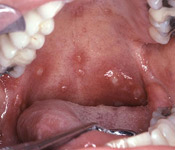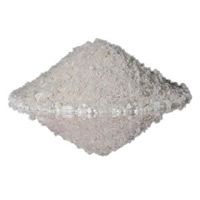Typically, a canker sore will last for 10 to 14 days and quite often it’s very painful. While in the end they will heal without treatment, for some people the pain and discomfort is agonizing. If you have tried all kinds of over-the-counter products and home remedies and were thinking about going to the big guns – prescription medications – consider laser treatment for your mouth sores first. Lasers are one of the best canker sore treatments available today. The therapy is inexpensive, comfortable and extremely effective. They are superior to other methods because don’t merely offer short-term relief, but actually have a profound effect on healing and may reduce the recurrence.
In a study conducted at the University of Louisville, 63% of patients reported faster healing and 50% said they experienced no recurrence within the next six months. Those who did get new ulcers said they were less severe.
How Does The Laser Treatment Work
Lasers can be used for a wide variety of dental procedures, including implant surgeries, biopsies, frenectomies, periodontal disease, gum contouring, treatment for gingivitis, as well as for canker sores. Treatment is precise and bloodless. Dentists who perform laser therapy report amazing success treating aphthous ulcers with laser and say that healing is dramatically fast. The main goal of laser therapy is to stop the pain and trigger a rapid healing response. The majority of patients undergoing this type of treatment report immediate, dramatic improvements and most find their ulcers heal within a day. The process seals off nerve endings and promotes faster healing.
Nd:YAG Laser
There are several different types of lasers that may be used on your mouth ulcers and they can be used on the lips, the tongue, inner cheek tissues and gum areas. Some dentists use the FDA-approved Nd:YAG laser, which refers to the crystal that produces the beam of light. Here is the procedure for this kind of laser:
The Nd:YAG has biostimulative and disinfecting properties. As the laser is passed over the ulcer for several minutes, the patient will feel a warming sensation, but no pain. The laser disinfects the ulcer, reduces the inflammation, and relieves pain, and the overall result will be faster healing of the lesion. The laser will also seal the nerve endings, which reduces pain immediately.
Diode Laser
Other dental professionals use the diode laser to treat aphthous ulcers for about one to two minutes. The dental diode laser technology has an anti-bacterial effect and offers patients dramatic, almost instant relief. The diode laser can emit both a continuous or pulsed light and both create an intense beam of light energy that when directed at mouth tissue, converts into heat. There is a photo-thermal reaction which vaporizes the ulcer without damaging the surrounding tissue.
Get Treated Early
Dentists recommend that for the best outcome you should be treated as soon as you first get the canker sore. if you catch it in the early stage, the laser may prevent it from becoming a full-fledged ulcer.
Another attraction of using a laser to treat mouth ulcers is that the soft tissue is vaporized without bleeding and there are no sutures required and you don’t need anesthesia. The laser wound is self-healing and since there are no incisions the chance of infection is very slight. Once the lesion has been removed you will likely be left with a red area, which is the inflamed area that surrounded the original ulcer. This will go away in a couple of days as the lesion site continues to heal.
Benefits of Laser Treatment
- Promotes faster healing
- Pain relief is immediate and profound
- Affordable and often covered by dental insurance
- Stops progression of the ulcer
- Only takes a few minutes
- No anesthesia
- Little if any discomfort
- Sores reoccur with less intensity and frequency at the same site
Laser therapy is usually performed in your dental office by either a dentist or hygienist. Since the procedure is still relatively new, not all dentists offer it. Check with your dentist. If he or she does not offer laser treatment, you could try going to a different dentist just for this therapy. It may be well worth your while if you can get fast relief and reduce the chances of recurrence.


